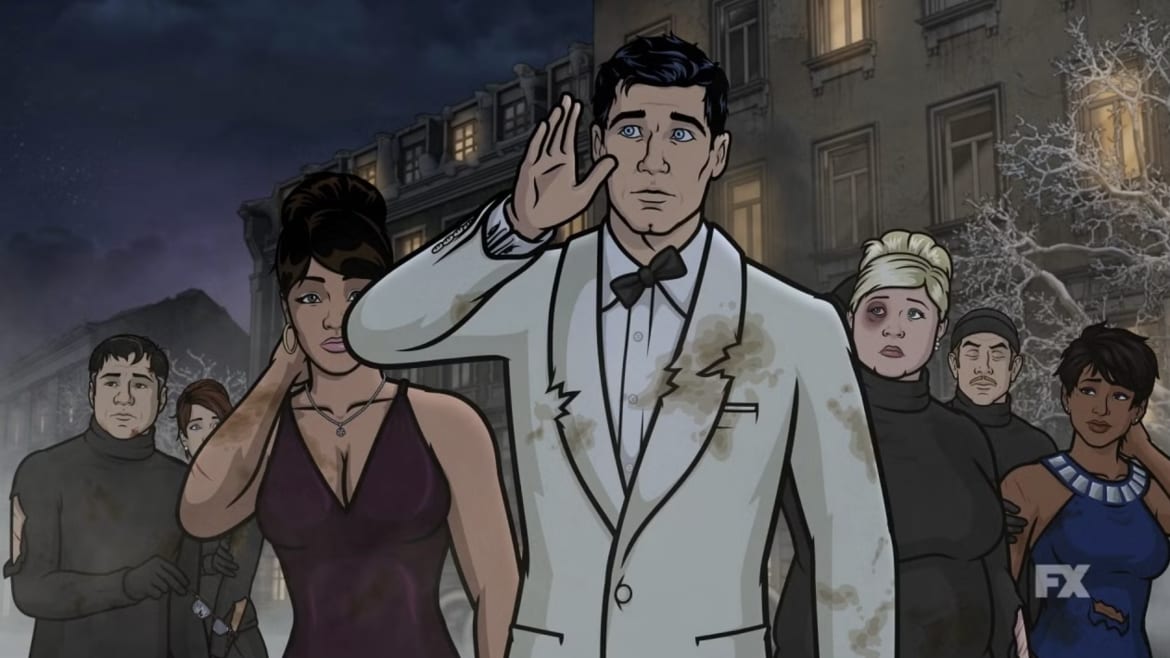FX
Blessed with the peerless cynicism of a former intelligence agent, John le Carré’s 1963 novel The Spy Who Came in from the Cold remains the consensus pick for the high-water mark of the espionage genre. The author did away with the image of the spy as crusading defender of Western democracy, casting him instead as an impotent errand boy doing the bidding of shadowy authorities with no moral high ground over their enemies. As le Carré concluded, all these missions and casualties accomplish little more than reinforcing our existing architectures of influence.
It’s with a reverent wink that the super-sized Archer finale, subtitled Into the Cold (which premiered on FX Sunday night, Dec. 17), reflects this same notion. For 14 seasons, the stupid ineffectiveness of Sterling Archer’s much-rebranded agency has provided this FX animated spy spoof with punchlines, each operation tied up either in failure that doesn’t matter or hollow, meaningless successes. But as the gang prepares to disband and the Archer staff does the same, the bleak pointlessness of spycraft provides a clever channel for some weighty emotions rising to the surface.
This unusually tenacious show can be divided up into three phases: the unassailable run of early seasons, the hit-or-miss middle period that saw the ensemble dropped into various long-form homages generated by Archer’s comatose brain, and the resurgent late era returning everyone to reality. The four seasons collected in the final phase have delivered a lot of satisfying payoffs in terms of its protagonist’s development, as he’s dealt with the loss of his mother (forced by the passing of Jessica Walter, her absence as glaring and significant as Nancy Marchand’s in the role of comparably toxic matriarch Livia Soprano) and the move of his rival/lover Lana (Aisha Tyler) into Malory Archer’s vacated director chair. The psychology of an alcoholic, sex-addicted, terminally narcissistic mama’s boy has carried a run far longer than fans of creator Adam Reed’s short-lived previous series Frisky Dingo ever dared to expect. And in its parting hour, Archer’s quest for self-actualization dovetails with an existential crisis for his entire profession.

